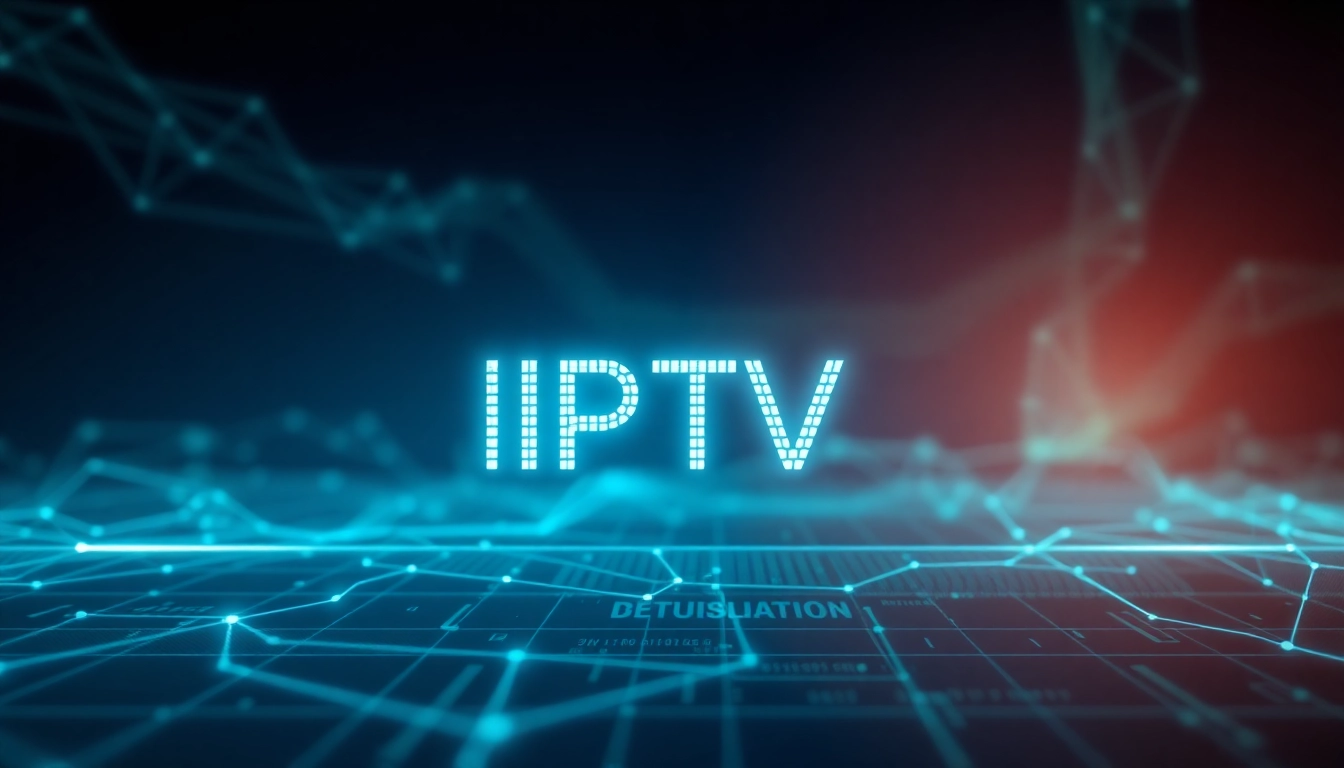The Importance of Cyber Security Fredericksburg
In an age where technology underpins virtually every aspect of business and personal life, the significance of cyber security fredericksburg cannot be overstated. Cities like Fredericksburg are increasingly becoming attractive targets for cybercriminals. This rise in cyber threats necessitates a robust approach to protect sensitive data and maintain operational integrity within local businesses. Understanding the risks and implementing proactive defenses is essential for safeguarding the community’s economic health.
Understanding Local Threats
Fredericksburg’s businesses, ranging from small enterprises to larger institutions, are encountering diverse cyber threats. Local organizations face specific challenges, including:
- Ransomware attacks: Cybercriminals often target local businesses, threatening to encrypt essential files unless a ransom is paid.
- Data breaches: Unauthorized access to sensitive customer information can have devastating consequences, both legally and reputationally.
- Phishing schemes: Local employees can unwittingly become vectors for malicious attacks through misleading emails that seem legitimate.
Staying abreast of these threats is vital for businesses and employees alike. Understanding local trends can help in developing targeted cybersecurity strategies that address the specific vulnerabilities present in Fredericksburg.
Impact of Cyber Attacks on Businesses
The repercussions of cyber attacks can be catastrophic. Businesses in Fredericksburg reporting cyber incidents often see:
- Financial loss: Companies face not just immediate costs due to damage control but also prolonged effects such as loss of revenue and potential legal fines.
- Operational disruptions: Attacks can halt business operations, resulting in a significant setback that hampers productivity and lowers employee morale.
- Reputational damage: Customers are likely to lose trust in a business that suffers from a cyber attack, which can take years to recover.
Recent studies indicate that businesses that implement effective cyber security measures can significantly reduce the likelihood of these dire consequences.
Legal Requirements and Compliance
In Fredericksburg, as in the rest of the country, businesses are subject to various laws and regulations regarding data protection. Non-compliance can lead to severe penalties. Understanding legal obligations such as:
- Data Protection Laws: Compliance with laws such as the General Data Protection Regulation (GDPR) or the California Consumer Privacy Act (CCPA) where applicable.
- Industry Standards: Adherence to specific industry norms like PCI-DSS for organizations dealing with credit card transactions.
- Incident Reporting: Timely reporting of cyber incidents as mandated by local laws to mitigate risks and protect customers.
To be proactive, Fredericksburg businesses should implement comprehensive compliance strategies that keep pace with evolving regulations.
Common Vulnerabilities in Fredericksburg
Identifying Weak Points in Your Infrastructure
Understanding the common vulnerabilities present within information technology infrastructure is the first step in mitigating cyber threats. Key areas where weaknesses often lie include:
- Outdated Systems: Older operating systems or software that are no longer supported receive no patches against newly discovered vulnerabilities.
- Network Configuration: Improper settings in firewalls, routers, or servers could provide gateways for intruders.
- Unencrypted Data: Without appropriate encryption methods, businesses risk exposing sensitive information.
Regular vulnerability assessments can help identify these weak points, enabling timely remediation before an attack occurs.
Employee Awareness and Training
Even the most sophisticated security systems can be compromised if employees are not adequately trained. Raising awareness and imparting knowledge can significantly reduce vulnerabilities in the workforce. Essential components of an effective training program include:
- Regular Workshops: Conducting training sessions on recognizing cyber threats, such as phishing scams and social engineering tactics.
- Best Practices: Teaching employees about password management, secure surfing, and safe usage of company devices.
- Phishing Simulations: Running mock phishing attacks to assess employee readiness and reinforce vigilance.
Investing time and resources in employee training not only strengthens defenses but also fosters a culture of security awareness.
Phishing and Social Engineering Tactics
Phishing remains one of the most prevalent cyber threats faced by businesses. Cybercriminals use a range of tactics to deceive employees into providing sensitive information. Common methods include:
- Email Phishing: Fraudulent emails that appear to be from legitimate sources, urging recipients to click links or provide sensitive information.
- Spear Phishing: Targeted attacks on specific individuals within a company, often utilizing personal data to increase credibility.
- Pretexting: Creating a fabricated scenario to obtain confidential data from employees by posing as an authoritative figure.
Businesses must implement training to help employees recognize these tactics and establish a strict protocol for handling suspicious communications.
Best Practices for Cyber Security Fredericksburg
Implementing Strong Password Policies
Weak passwords are one of the primary points of entry for cybercriminals. Implementing strong password policies can substantially reduce risks. Best practices include:
- Complexity Requirements: Mandate a mix of upper and lower-case letters, numbers, and special characters.
- Regular Change Cycles: Encourage or require employees to change their passwords every three to six months.
- Password Management Tools: Utilize password managers to help employees store and generate strong passwords securely.
These measures can significantly deter unauthorized access to sensitive accounts and systems.
Regular Software Updates and Patching
Keeping software up-to-date is crucial for maintaining strong cyber defenses. Software updates often contain essential patches that fix vulnerabilities. Consider the following:
- Automated Updates: Enable automatic updates whenever possible to ensure that the latest security patches are applied without delay.
- Lifecycle Management: Regularly review and phase out outdated software that is no longer supported or updated by vendors.
- Third-party Software: Ensure that third-party applications and plugins also receive regular updates.
Implementing a robust update protocol can greatly enhance a system’s security posture.
Utilizing Firewalls and Antivirus Programs
Firewalls and antivirus software are critical layers of defense against cyber threats. Businesses in Fredericksburg should prioritize:
- Network Firewalls: Install firewalls to monitor incoming and outgoing traffic and block unauthorized access.
- Endpoint Protection: Utilize antivirus solutions on all endpoints to detect and mitigate malware, ransomware, and other malicious software.
- Regular Scanning: Schedule regular system scans to detect any potential threats and vulnerabilities.
By employing these technologies effectively, businesses can build a formidable defense against external attacks.
Advanced Cyber Security Techniques
Multi-Factor Authentication in Cyber Security Fredericksburg
Multi-Factor Authentication (MFA) adds an essential layer of security by requiring additional verification methods beyond just a password. Best practices include:
- Layered Security: Use a combination of something the user knows (password) and something they have (mobile device authentication) or something they are (biometric verification).
- Implementation Across Systems: Enforce MFA on all sensitive systems, including email, financial software, and internal databases.
- User Education: Train employees on the importance and usability of MFA to foster compliance.
MFA has been shown to significantly reduce the risk of unauthorized access to sensitive systems.
Data Encryption and Secure File Sharing
With data breaches being a significant threat, encrypting sensitive information both at rest and in transit is crucial. Consider these practices:
- Encryption Standards: Utilize strong encryption protocols such as AES-256 for secure data storage and transmission.
- Secure Sharing Platforms: Use secure file-sharing services that encrypt data and offer permissions to control access.
- Regularly Review Access: Assess and update access controls regularly to ensure that only authorized personnel can access sensitive data.
These actions not only protect against data breaches but assure clients and customers of a company’s commitment to cybersecurity.
Incident Response Planning
Despite the best preventive measures, incidents can still occur. Having a clear incident response plan is crucial. Key steps include:
- Formation of Response Team: Assemble a dedicated team responsible for managing and responding to cyber incidents.
- Incident Response Protocols: Develop step-by-step procedures for identifying, containing, and eradicating threats.
- Post-Incident Review: Conduct post-incident analysis to evaluate the effectiveness of the response and identify lessons learned.
A robust incident response plan enables organizations to quickly recover from attacks, minimizing damage and ensuring continuity of operations.
Measuring Cyber Security Effectiveness
Key Performance Indicators for Cyber Security Fredericksburg
To assess the effectiveness of cyber security measures, businesses should track relevant Key Performance Indicators (KPIs). Important metrics include:
- Incident Frequency: Track how often cyber incidents occur to gauge overall security effectiveness.
- Incident Response Time: Measure the time taken to detect and respond to security incidents to evaluate how quickly threats are managed.
- Employee Training Completion Rates: Monitor how many employees complete security training programs as a measure of awareness.
Regularly reviewing these metrics provides insights into the organization’s cyber security posture and areas for improvement.
Regular Security Audits and Assessments
Regular security audits help identify gaps in the existing security framework. Key points for conducting security assessments include:
- External Auditors: Consider hiring third-party auditors to provide an unbiased assessment of cyber security defenses.
- Vulnerability Scanning: Implement regular vulnerability scans to identify exposed weaknesses in systems and applications.
- Compliance Checks: Assess compliance with relevant laws and regulations in every audit cycle.
Regular assessments enable businesses to proactively address vulnerabilities before they can be exploited.
Continuous Monitoring and Threat Detection
Investing in continuous monitoring systems is essential for detecting anomalies and potential threats in real-time. Implementing effective monitoring involves:
- Security Information and Event Management (SIEM): Utilize SIEM tools to collect, analyze, and respond to data from various sources in real-time.
- Behavioral Analytics: Adopt analytics tools that monitor user behavior to detect irregular activity indicative of a threat.
- Regular Updates: Ensure continuous updates of monitoring tools to include the latest threat data to stay ahead of potential vulnerabilities.
Effective continuous monitoring helps organizations catch threats early, reducing the risk of significant damage from cyber incidents.



